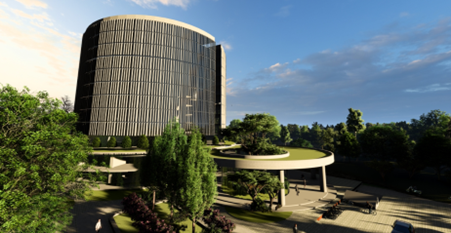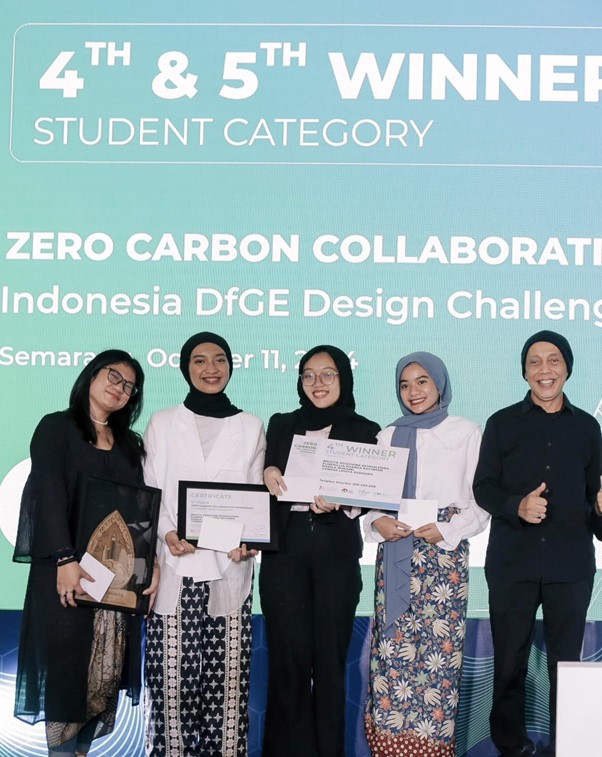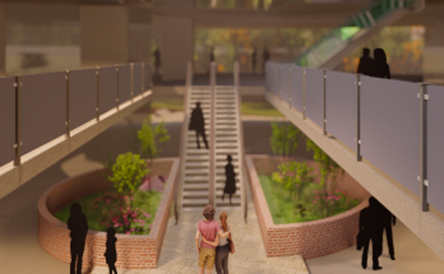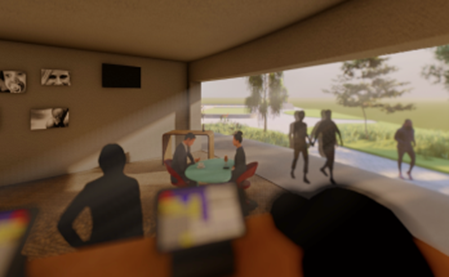Guided by lecturers from the Department of Architecture, including Dr.-Ing. Ir. Ova Candra Dewi, S.T., M.Sc., GP. IPU., Intan Chairunnisa, S.Ars., M.Ars., and Nisrina Dewi Salsabila, S.Ars., M.Sc., through the Energy-Efficient Building (BHE) course, the team designed an office building embracing the net-zero emission concept. The building compensates for its carbon emissions by incorporating diverse plant species capable of absorbing approximately 101 tons of carbon annually.
The SEMA-ROUND design emphasizes a healthy and productive work environment through natural lighting and effective ventilation. Inside, a communal garden serves as a comfortable rest area for building occupants. The design reflects an architectural approach that prioritizes occupant well-being while committing to carbon emission reduction. The building includes commercial and public areas on the podium and eco-friendly office spaces on the upper floors.
“We are proud of the innovation demonstrated by the SEMA-ROUND team. Their net-zero emission approach not only addresses modern office needs but also creates spaces that harmonize with the environment,” stated FTUI Dean, Prof. Dr. Ir. Heri Hermansyah, S.T., M.Eng., IPU.
One team member, Brigita Josephine Rehmalemna, shared her perspective: “This project is not just about designing a building; it’s about our commitment to sustainable development. We aim to create a work environment that positively impacts both the environment and society.”
The team’s advisor, Nisrina Dewi Salsabila, highlighted the team’s dedication to net-zero emission principles in architecture. “They have proven that buildings can be designed with purposes beyond functionality—to contribute to the greater good,” she said.
The Indonesia Design for Greater Efficiency (DfGE) Design Challenge is an annual architecture competition initiated by the International Finance Corporation (IFC) to promote the development of sustainable building designs. Since its inception in 2023, the competition has aimed to enhance students’ and young professionals’ understanding of green building concepts, focusing on resource-efficient designs that reduce carbon emissions.
In the 2024 competition, participants were tasked with designing a “Zero Carbon Building” office space in Simpang Lima, Semarang. Proposed buildings needed to achieve net-zero carbon emissions using energy efficiency strategies, renewable energy, and environmentally friendly concepts relevant to Indonesia’s climate challenges.
***
Public Communications Office
Faculty of Engineering, Universitas Indonesia




